Filter by

Environmental Contaminants in Biota : Interpreting Tissue Concentrations, Sec…
Discussing the interpretation of tissue concentrations of contaminants in wildlife, this updated edition of a bestseller draws on current scientific research and includes new chapters and greater emphasis on aquatic organisms. Each chapter provides a summary and review of a specific chemical along with direction on research methods and the interpretation of conflicting or insufficient data. Cha…
- Edition
- -
- ISBN/ISSN
- 9780429141881
- Collation
- 768 p
- Series Title
- -
- Call Number
- 570 ENV

Environmental life cycle assessment
Environmental Life Cycle Assessment is a pivotal guide to identifying environmental problems and reducing related impacts for companies and organizations in need of life cycle assessment (LCA). LCA, a unique sustainability tool, provides a framework that addresses a growing demand for practical technological solutions. Detailing each phase of the LCA methodology, this textbook covers the histor…
- Edition
- -
- ISBN/ISSN
- 9780429111051
- Collation
- 332 p
- Series Title
- -
- Call Number
- 333 JOL e
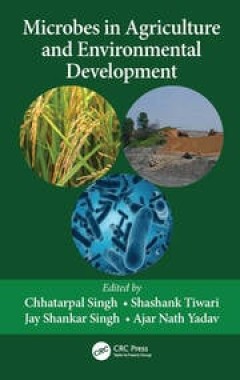
Microbes in Agriculture and Environmental Development
The collection of essays in Microbes in Agriculture and Environmental Development explores the applications of microbes for the improvement of environmental quality and agricultural productivity through inoculants and enzymes. These are useful for the conservation and restoration of degraded natural and agricultural ecosystems, crop yield extension, soil health improvement, and other aspects of…
- Edition
- -
- ISBN/ISSN
- -
- Collation
- -
- Series Title
- -
- Call Number
- -

Handbook of Marine Model Organisms in Experimental Biology
The importance of molecular approaches for comparative biology and the rapid development of new molecular tools is unprecedented. The extraordinary molecular progress belies the need for understanding the development and basic biology of whole organisms. Vigorous international efforts to train the next-generation of experimental biologists must combine both levels – next generation molecular …
- Edition
- -
- ISBN/ISSN
- -
- Collation
- -
- Series Title
- -
- Call Number
- -

Management of Animal Care and Use Programs in Research, Education, and Testing
AAP Prose Award Finalist 2018/19 Management of Animal Care and Use Programs in Research, Education, and Testing, Second Edition is the extensively expanded revision of the popular Management of Laboratory Animal Care and Use Programs book published earlier this century. Following in the footsteps of the first edition, this revision serves as a first line management resource, providing for st…
- Edition
- -
- ISBN/ISSN
- -
- Collation
- -
- Series Title
- -
- Call Number
- -
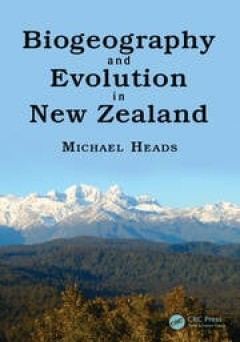
Biogeography and Evolution in New Zealand
Biogeography and Evolution in New Zealand provides the first in-depth treatment of the biogeography of New Zealand, a region that has been a place of long-enduring interest to ecologists, evolutionary scientists, geographers, geologists, and scientists in related disciplines. It serves as a key addition to the contemporary discussion on regionalization—how is New Zealand different from the re…
- Edition
- -
- ISBN/ISSN
- -
- Collation
- -
- Series Title
- -
- Call Number
- -
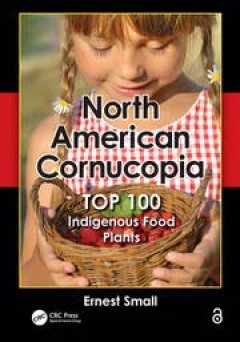
North American Cornucopia
Many North American plants have characteristics that are especially promising as candidates for expanding our food supply and generating new economically competitive crops. This book is an informative analysis of the top 100 indigenous food plants of North America, focusing on those species that have achieved commercial success or have substantial market potential. The book's user-friendly form…
- Edition
- -
- ISBN/ISSN
- -
- Collation
- -
- Series Title
- -
- Call Number
- -
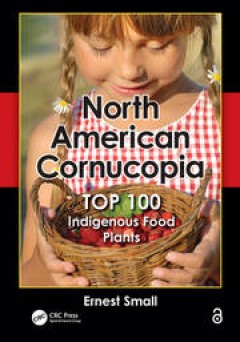
North American Cornucopia
ABSTRACT Many North American plants have characteristics that are especially promising as candidates for expanding our food supply and generating new economically competitive crops. This book is an informative analysis of the top 100 indigenous food plants of North America, focusing on those species that have achieved commercial success or have substantial market potential. The book's user-fri…
- Edition
- -
- ISBN/ISSN
- 9780429162794
- Collation
- -
- Series Title
- -
- Call Number
- -
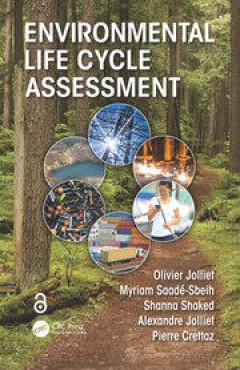
Environmental Life Cycle Assessment
Environmental Life Cycle Assessment is a pivotal guide to identifying environmental problems and reducing related impacts for companies and organizations in need of life cycle assessment (LCA). LCA, a unique sustainability tool, provides a framework that addresses a growing demand for practical technological solutions. Detailing each phase of the LCA methodology, this textbook covers the histor…
- Edition
- -
- ISBN/ISSN
- 9780429111051
- Collation
- -
- Series Title
- -
- Call Number
- -
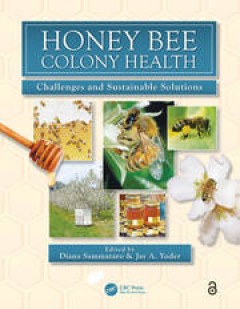
Honey Bee Colony Health : Challenges and Sustainable Solutions
This book summarizes the current progress of bee researchers investigating the status of honey bees and possible reasons for their decline, providing a basis for establishing management methods that maintain colony health. Integrating discussion of Colony Collapse Disorder, the chapters provide information on the new microsporidian Nosema ceranae pathogens, the current status of the parasitic b…
- Edition
- -
- ISBN/ISSN
- 9780429185045
- Collation
- -
- Series Title
- -
- Call Number
- 630
 Computer Science, Information & General Works
Computer Science, Information & General Works  Philosophy & Psychology
Philosophy & Psychology  Religion
Religion  Social Sciences
Social Sciences  Language
Language  Pure Science
Pure Science  Applied Sciences
Applied Sciences  Art & Recreation
Art & Recreation  Literature
Literature  History & Geography
History & Geography